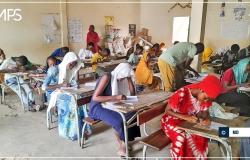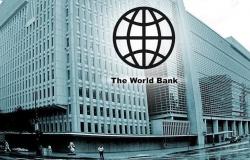The President of the Republic, Bassirou Diomaye Faye, during his visit to Bamako on Thursday May 30, 2024, made a statement which sounded like a cold shower to his Malian hosts. The Senegalese head of state, during a joint press conference with Colonel Assimi Goïta, was blunt in answering the question of a journalist who asked him if it was possible for Senegal to join the Alliance of Sahel States (Aes), made up of Mali, Niger and Burkina Faso. Bassirou Diomaye Faye was categorical: “This is not on the agenda.” Senegal shows its preference for the Economic Community of West African States (ECOWAS) and supports the efforts of the regional community organization to bring lost brothers back to the family home. However, Bassirou Diomaye Faye would still like to be clear: “I am not the mediator of anyone, nor of ECOWAS.”
The declaration may have gone unnoticed in Dakar, but it fueled comments in Bamako. The Malian political class felt relieved by this strong position taken by the Senegalese head of state. However, it must be said that there were quite a few Malians who looked down on Bassirou Diomaye Faye, not to say that they were somewhat suspicious of her. For its part, the Malian junta found it more or less discourteous that the President of Senegal delayed visiting Mali. But on the other hand, the rapprochements and visits announced by Prime Minister Ousmane Sonko to strengthen relations with the juntas in power in the three member countries of the Aes could surprise, if not worry, political actors. Politicians and heads of civil society organizations in Mali, who had applauded the putschists in their early days, quickly became disillusioned. Political parties and civil society movements are now banned in Mali and their leaders hunted. The press? A heavy weight hangs over the heads of journalists critical of the colonels in power who also think that it is time to adorn their epaulettes with the stars of the rank of General. Journalists disappear or, at best, languish in prison.
The model, not to say the Malian counter-model, cannot therefore be inspiring and our “brothers” from Mali urge Senegal to consider other perspectives, although the transition of Colonel Goïta seems set to become eternal. Colonel Goïta monopolized all power after a second coup, on May 28, 2021. He had perpetrated a first putsch against President Ibrahim Boubacar Keïta (IBK), on August 18, 2020, and remained in a “small” role of vice-president, under the shadow of a retired General, Bah Ndaw. Colonel Goïta is not yet thinking of setting a timetable for elections to return power to civilians. The “younger brother” of Burkina Faso, Captain Traoré, has finished showing the way by granting himself a “mandate” of five years, from the expiration of the first transition period of 21 months which was scheduled to end in July 2024. A “gift seven-year term”, so to speak. We did not want to be mistaken again about the intentions of the putschists and recommended putting Mali under provisional UN administration (see Le Quotidien of May 25, 2021).
Bamako and all of Mali are dying
If you want to live without electricity for 72 hours straight, in a capital city, go to Bamako! The company Electricité du Mali (Edm) is giving up, unable to ensure an energy supply. “Certainly, Mali experienced major power cuts when civilians were in power, but not with this permanence of the cuts, for long days; all limits are exceeded,” we lament in Niamana, Sikoroni, Danfina, 1008 Housing and other neighborhoods of Bamako. The consequences are fatal for the economy. Large hotels are closing and cannot provide even the slightest decent quality of service. “Colossal investments are necessary,” assures a manager of one of the rare reception centers in the Malian capital which still welcomes guests. “We are forced to run generators all the time or make very large investments in solar parks, and this increases operating costs. If the electricity comes back, it’s never for more than two hours.” In addition, customers are becoming rare. Business or tourist visitors are turning away from Mali. Economic gloom is affecting all sectors. The country’s economy is in slump. Moreover, Mali is no longer able to mobilize funds on regional financial markets. The latest bond issue launched for 80 billion CFA francs was only 33% covered. The confidence of financial circles is lost and, in its edition of May 30, 2024, the magazine La Nouvelle Libération explains the low confidence of investors by the fact that “money does not like noise”. Indeed, the sovereignist rantings of the Malian authorities scare investors. The risk premium is higher on the bonds of Burkina Faso, Mali and Niger than in other countries in the West African Economic and Monetary Union (WAEMU) area.
The security situation is deteriorating day by day and yet the Malian soldiers, like their comrades in Burkina Faso, used the pretext of the need to better curb insecurity to seize power. During the dark nights, burglaries, robberies and other cases of aggression are legion, particularly in the 1008 Logements neighborhoods or in Magnambougou. Islamist terrorists make their law reign in the interior provinces of the country such as in the districts of Ségou, Mopti and in the Séwaré area. What is the Wagner group doing, which was supposed to curb Islamist terrorist actions since its arrival in the country in 2022? “Russian mercenaries above all ensure the security of the junta bosses.” We indicated in a premonitory manner that “the Assimi Goïta regime already knew it was on a tightrope and sought to ensure its own security, by paying for the services of Russian mercenaries” (See the column of October 4, 2021: “The solution Wagner or the cynicism of the Malian junta). But, more seriously, horrible abuses against civilian populations are also reported in many regions of central and northern Mali, particularly in the Mopti area such as Moura, Attara, Dioura, Dakka Sebbe; the UN demands investigations and other expert missions, some of whom, through the voice of Alioune Tine from Senegal for example, have claimed to have been able to document actions of mass killings. These operations by auxiliaries in teams with Malian soldiers have the appearance of ethnic cleansing against certain populations.
The country’s economy is dying, unemployment is affecting a greater number of people and large stores are closing their doors. But the ordeal of the populations is accentuated by the lack of water, in a country where the thermometer displays more than 40 degrees, whatever the time. Students on the Kabala university campus were forced to make themselves heard loudly on Tuesday, May 28, 2024, with protests that were met with violence because they had not had access to running water for several months. Faced with growing popular discontent, the military regime banned all political and civic activities. And as if to make matters worse, a fierce quarrel is occupying the highest leaders of the country. Prime Minister Choguel Maïga, who had renounced all his democratic convictions to make allegiance or pact with the junta, now finds himself in the crosshairs of the military and his supporters are arrested every day for their positions on social networks. The lesson of history is that it would be appropriate for all those in Senegal who enthusiastically welcomed the military coups to take a trip to Bamako, Ouagadougou and Niamey to realize that they would not wish live the fate of their inhabitants. Indeed, the situation in Ouagadougou and Niamey is even worse than in Bamako. We can bet that after his trip to the sub-region, Bassirou Diomaye Faye must know what should be avoided to panic the partners without whom a country like Senegal could not continue to be better off than its neighbors.
Post scriptum: “Governing is not humiliating, Mr. President!”
This title is borrowed from my excellent colleague, Mamadou Oumar Ndiaye, from the newspaper Le Témoin, who published a text that many applauded, on June 22, 2021. He castigated the “humiliating” circumstances and events of the dismissals by President Macky Sall , generals Birame Diop and JeanBaptiste Tine. The text was republished again, with a certain malice by Le Témoin, the day after the appointment of these general officers to occupy in the government of Ousmane Sonko, respectively the functions of Minister of the Armed Forces and Minister of the Interior and public safety. We could not help but think back to this text after the dismissal, last week, still unceremoniously, by President Bassirou Diomaye Faye, of General Souleymane Kandé, chief of staff of the Army and cumulatively commander Special Forces. General Kandé was in fact the military authority who held the greatest firepower. Had he lost the confidence of the supreme leader of the Armed Forces? Certainly ! It is therefore not surprising that he was replaced as general officers Diop and Tine had been. However, the latter seem to have been treated better. The generals “humiliated” by Macky Sall had been placed in prestigious positions. General Birame Diop was promoted to Military Advisor in the UN Department of Peace Operations and General Tine was exiled as ambassador to Moscow. But Souleymane Kandé will suffer the ultimate humiliation, seeing himself reduced to a position of Defense Attaché in a third category Senegalese embassy, under the jurisdiction of India. He will replace Colonel Abdoulaye Traoré. It should not be common, in organized armies, to see a General of the Army Staff appointed to a position to replace a Colonel! General Joseph Louis Tavarez Da Souza, whom President Abdou Diouf will accuse in memoirs of having wanted to perpetrate a coup d’état, was relieved on May 31, 1988, of his command to be appointed ambassador to Bonn (Federal Republic of Germany). Abdou Diouf had put some form into it. General Da Souza will be recalled later to Dakar to be automatically retired. However, I have a request to make to you, General Kandé: do not ignore your stripes that you have earned with great merit. Some fear it, but it would be playing into the hands of those you have defeated in the field of military operations. There is no sufficient reward that the Nation could give you for your service against the Movement of Democratic Forces of Casamance. It is truly not “patriotic” not to recognize you for this inestimable merit. I’m going to cast a statuette in your image!






